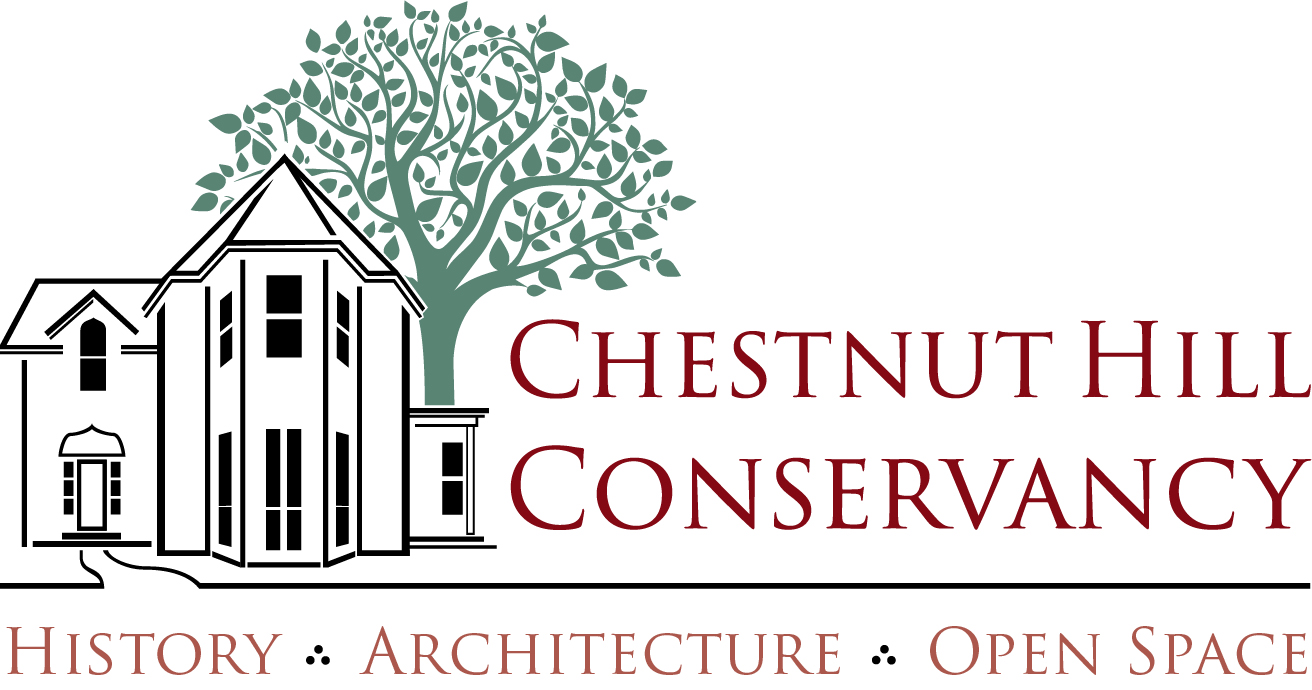
Julia Hebard Marsden House has been altered and expanded over the years. It is now owned by Chestnut Hill Hospital. In 1977, it became the Chestnut Hill Health Care Women’s Center—Chestnut Hill Conservancy Archives.
Monday, May 13, 2024
By Chrissy Clawson, Programs and Communications Manager
Amid the backdrop of Historic Preservation Month, Chestnut Hill celebrates a significant victory—an outcome of collaborative efforts between the Chestnut Hill Conservancy and Temple Health – Chestnut Hill Hospital. At its May 10 meeting, the Philadelphia Historical Commission unanimously voted to list the Chestnut Hill Hospital’s Women’s Center at 8835 Germantown Avenue in the Philadelphia Register. Formerly known as the Julia Hebard Marsden House, the Chestnut Hill Hospital Women’s Center is a testament to the community’s resilience, having been crafted through the adaption of a former historic home.
This victory marks a pivotal moment in the ongoing journey to preserve our community’s architectural and cultural legacy. Congratulations to both organizations and the Chestnut Hill community for this preservation win. The conservancy expresses deep gratitude to Councilperson Cindy Bass’s office and the Philadelphia Historical Commission for their ongoing involvement in the negotiations.
Designed in a Georgian-influenced Colonial Revival style by the accomplished and prolific architect Charles Barton Keen (1868-1931), the former Julia Hebard Marsden House is listed on the Chestnut Hill National Register Historic District as a significant architectural resource. Built in 1903 for Julia Hebard Marsden and her husband, Dr. Biddle Reeves Marsden, the house is a distinctive and characteristic example of the Colonial Revival style. Reusing the former home and doctor’s office into the Chestnut Hill Women’s Center is an excellent example of an institution evolving to benefit itself and the greater community’s needs. This transition from residential to institutional use is important for this building.
The Women’s Center, the last intact historic building on the hospital’s campus, enjoys a rich historical narrative. However, in 2021, discussions emerged about replacing this architectural landmark, prompting the conservancy to swiftly nominate it for preservation. A delicate negotiation ensued between hospital representatives and the conservancy, aiming to balance preservation concerns with the hospital’s operational needs.
Ultimately, a compromise emerged to protect the main building’s most visible parts while allowing for future growth by excluding the rear ell and carriage house from the designation.
Although the carriage house was excluded from the designation boundaries as part of the compromise, the commission encouraged collaboration between the conservancy and the hospital to document the Carriage House’s legacy for posterity.
The agreed-upon boundary, coinciding with the southern section of a larger parcel known as 8811 Germantown Avenue, encompassed the main block of the house along with its east and west wings. Notably, the rear wing lay outside the designated boundary, while the west wing, having undergone alterations, retained the potential for future modification or removal.
Future alterations or additions within the delineated boundary will undergo scrutiny by the Historical Commission, ensuring the property’s historical integrity for generations to come.
In navigating preservation challenges, the Chestnut Hill Hospital Women’s Center emerges as a success, where compromise facilitates the harmonious coexistence of heritage and progress. The compromise by the Chestnut Hill Conservancy and Temple Health ensures that the legacy of the Julia Hebard Marsden House endures as a testament to the community’s ability to grow and evolve and the preservation of its architectural heritage.





